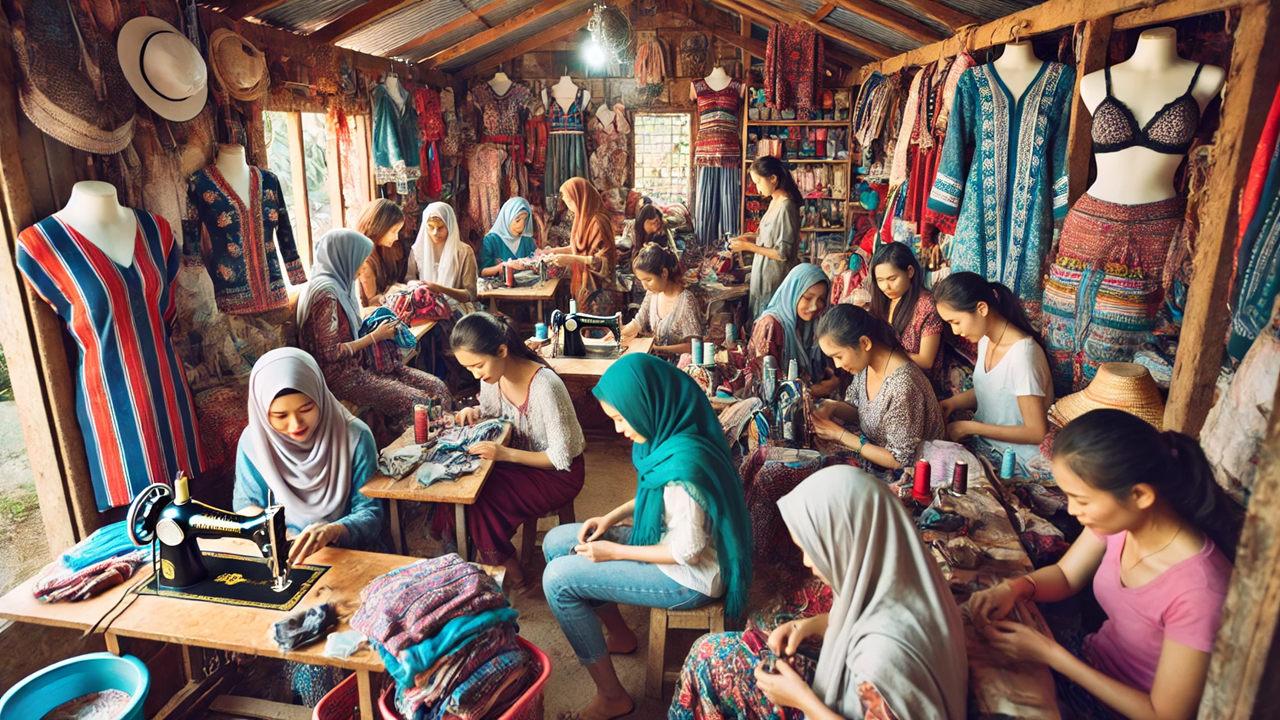Unleashing the Untapped Power: Women Entrepreneurs Drive Change in Rural India
A new report highlights the untapped potential of women entrepreneurs in rural India. With most enterprises operating at subsistence levels, the study identifies growth-oriented women entrepreneurs as key drivers of economic and social change. Despite facing cultural, financial, and structural barriers, these women show resilience and innovation, particularly in the face of challenges like COVID-19. The report offers policy recommendations to empower these businesses, unlocking their potential for growth.

Women-Owned Enterprises: An Untapped Resource
India's vast rural landscape is home to millions of women entrepreneurs, yet their potential remains largely untapped. According to the report "The Future is Female: An Assessment of Growth-Oriented, Opportunity-Driven, Women-Owned Enterprises in Rural India" by the World Bank, most women-owned enterprises in rural areas are subsistence-based, operating in low-growth sectors. These micro-enterprises account for a significant part of India’s economic structure but often lack the necessary resources to scale and evolve.
The report paints a picture of immense potential, with women entrepreneurs poised to create substantial economic and social impact if given the right tools. In rural India, approximately 5.2 million women-owned enterprises operate, with 87% relying solely on family labor and over 60% concentrated in manufacturing. These numbers highlight the stark reality: while entrepreneurship among rural women is widespread, its capacity for growth remains underdeveloped.
Growth-Oriented Women Entrepreneurs (GOWE)
The study categorizes a small segment of these enterprises as Growth-Oriented Women Entrepreneurs (GOWE). These businesses show tangible signs of growth through increases in employee count, rising annual sales, and innovations in products and services. GOWE stands in stark contrast to subsistence enterprises, which often remain stagnant. Key differentiators of GOWE include their willingness to reinvest profits back into their businesses, their access to formal financial loans, and the entrepreneurial traits of their founders.
Risk-taking, innovation, and autonomy are common traits found among women running growth-oriented businesses. These entrepreneurs are not just looking to support their families; they have a genuine drive to grow their businesses, embrace new ideas, and expand into new markets. Unlike subsistence businesses, which often operate within the confines of the household, many GOWE operate from market-based premises and employ additional staff, indicating a stronger orientation toward formal business growth.
Despite these advancements, GOWE remains a relatively small segment of rural entrepreneurship. The report shows that these enterprises represent only about 5.4% of the total women-owned businesses in rural India. Nonetheless, they hold immense promise for economic development, job creation, and empowerment.
Challenges Facing Women Entrepreneurs
The path for women entrepreneurs in rural India is fraught with challenges, many of which are deeply entrenched in cultural and social norms. The report highlights how gender roles and societal expectations often limit women’s ability to expand their businesses. Women are frequently confined to roles that involve caregiving and household responsibilities, which restricts their mobility and access to wider markets. This dependency on family members, especially male relatives, for activities such as sourcing supplies and conducting market activities is a significant barrier to growth.
Additionally, access to finance is a persistent challenge. Most women-owned enterprises are self-financed, with little formal credit available to them. The reliance on informal loans or savings stifles the ability of these businesses to expand. Growth-oriented entrepreneurs, in particular, find themselves in a difficult spot, as traditional lending institutions often fail to recognize their potential due to the lack of formal business structures and documentation.
Another significant challenge is the lack of advisory and mentoring support. Rural women entrepreneurs often operate in isolation, with limited access to networks that could provide valuable business advice, mentorship, and growth opportunities. This lack of support not only affects their ability to scale but also keeps them from fully realizing their potential.
The COVID-19 Impact: Resilience Amid Crisis
The COVID-19 pandemic further exposed the vulnerabilities of women-owned businesses. During the lockdowns, many enterprises were forced to shut down temporarily, with some reporting a loss in revenue of up to 56%. Growth-oriented enterprises, however, showed remarkable resilience. These businesses adapted to the new circumstances, whether by innovating products, changing marketing strategies, or adopting digital tools to reach customers.
While many subsistence enterprises failed to take any proactive measures during the pandemic, GOWE were more likely to reduce costs, take loans, and adjust their business models to cope with the crisis. This flexibility underscores the potential of these enterprises to survive external shocks and highlights their readiness for further growth.
Policy Recommendations for Empowering GOWE
The report makes a series of policy recommendations to foster the growth of women-owned businesses in rural India. These include providing gender-sensitive training that focuses on business management, financial literacy, and marketing. Additionally, the need for improved access to financial products designed specifically for growth-oriented women entrepreneurs is paramount. Flexible, unsecured loans, longer repayment schedules, and discounted interest rates could go a long way in helping these enterprises thrive.
Local mentorship programs are also crucial. Women entrepreneurs would greatly benefit from long-term, hands-on support from experienced mentors who understand the local markets and can provide strategic advice. The development of supportive ecosystems, which connect women entrepreneurs to formal markets, networks, and suppliers, is another essential step.
Furthermore, fostering an environment that challenges and reshapes gender norms could unlock new opportunities for women entrepreneurs. Encouraging community leaders to advocate for women in business and creating programs that support their mobility and decision-making capabilities could lead to broader, more inclusive economic development.
Women entrepreneurs in rural India have the potential to be catalysts for economic growth, but they need targeted support to unlock their full potential. The findings in "The Future is Female" report underline the importance of strategic interventions aimed at financial inclusion, capacity-building, and mentorship. By addressing the systemic challenges they face, India can turn these micro-enterprises into engines of growth, driving both economic prosperity and social transformation in rural communities.
- FIRST PUBLISHED IN:
- Devdiscourse










